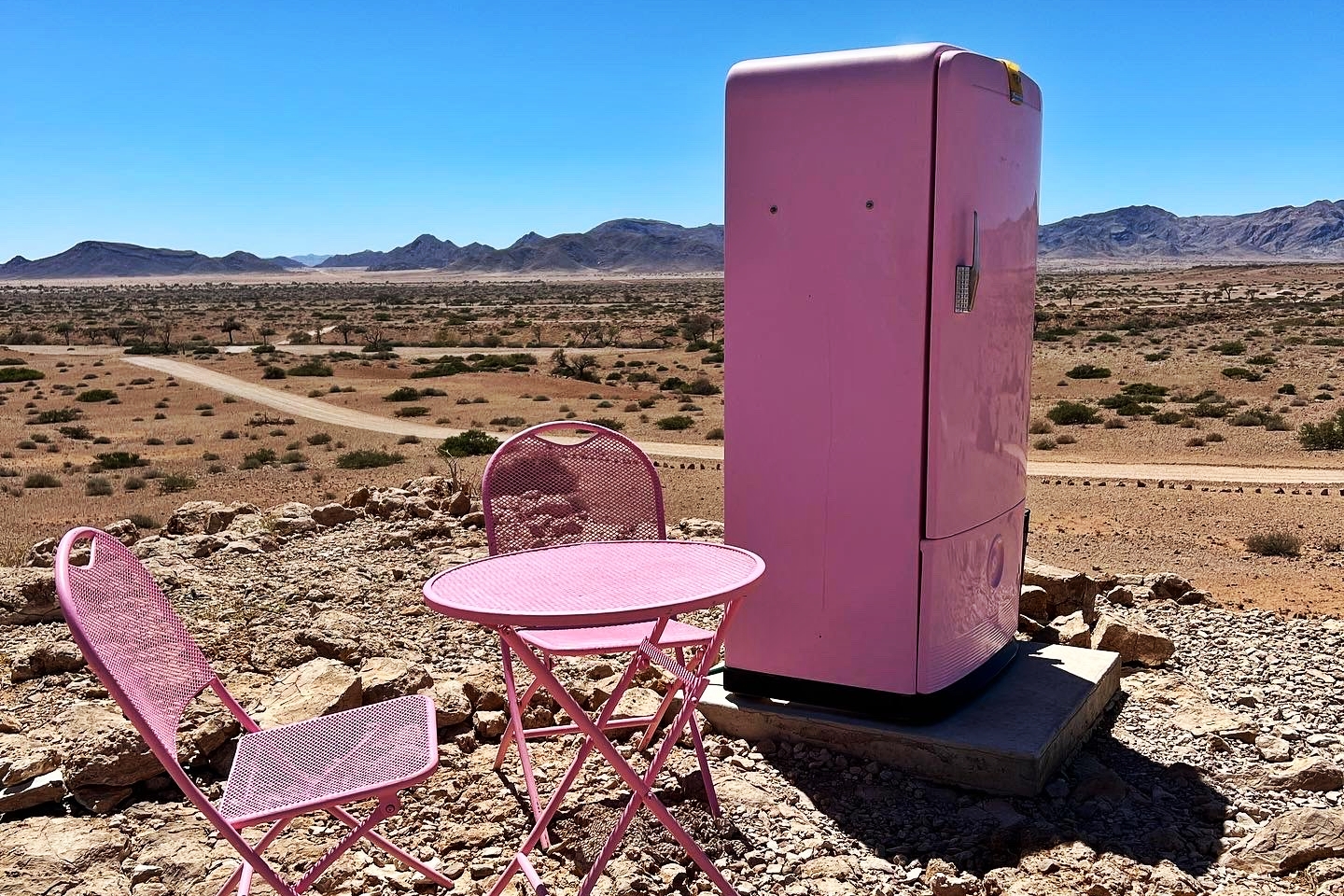What? No parasol over the table?
This rest stop sucks.
Or the fridge?? How hard is that heat pump working
I mean, that thing is working so hard it turned the entire surrounding countryside into desert!
What the fuck is a parasol?
Edit: I looked it up and now I understand. Does the word happen to come from Spanish? Parasol would mean “for the sun” much like other words like parabrisas.
Yes, but “para” also means “stop”. Comes from “parar”, “to stop”. In this case it would mean something like “sun stopper”. Or in your example, “breeze stopper”.
Oh wow, I feel like a moron now. I never could figure out why it would be “for wind.”
Haha nah you’re alright. Every day we learn something new! Also another one, “umbrella” is “paraguas” (waters stopper) :)
Or parapluie (rain stopper)
Nope that’s French, I think, my French est terrible, but definitely not Spanish.
Yup I didn’t take intend it to be a Spanish example btw, just to show that the para prefix works in other languages too.
Where are you from that you don’t know what a parasol is?
Just spent one month traveling around Namibia. It’s an incredible country and really well set up for 4*4 camping. The landscapes are huge, sunsets are amazing, it’s cheap, friendly and just so photogenic. HMU if you want more info.
were you able to see wild welwistchia plants.
Yes I was, near Swakopmund, they are also the national plant of Namibia
“4x4”
=16
“5x5”
4*4 camping
That’s a contradiction
Who says you have to hike to your destination?
Until I read your comment, I thought maybe you were supposed to camp in a tent that was 4" square. I was surprised there was a category for that or that anyone would find it contentious, other than for being inadequate.
Your comment made it all make sense, so thank you.
Campers do.
How very ableist of you.
I’ve camped in ADA compatible campgrounds. They were wheelchair accessible. Not car accessible.
Why?
TLDR for me?
Imagine stumbling upon a fully operational pink refrigerator, stocked with cold beverages, nestled incongruously in the heart of this arid wilderness. It’s not a hallucination or a mirage—it’s a deliberate and whimsical creation by the Namibia Tourism Board, designed to surprise and delight weary adventurers.
Those two sentences pretty much cover it.
TLDR: Theres a solar powered pink refredgerator in the Nambian Desert.
Cold drinks await
The government put the fridge there to attract tourists.
Ye
So how many panels does it take to power your average kitchen fridge? I estimate that a single modern rooftop-style panel could pull it off. Is there a battery being used in this setup? I suppose you wouldn’t need one if you’re only storing drinks that don’t need to be kept at a safe temperature 24/7. Regardless, I wish the article would have asked these questions.
Not a lot. Maximum power a fridge would draw is around 150W and it will work for about 8 hours per day so 1.2 kW. A 1 m² panel should provide enough power and energy, even with conversion losses. You’d need a battery though.
My kitchen fridge is relatively new, uses ~1.25 kWh/day, typically draws ~100W when running and never really goes over 200W
My garage fridge is older and cheaper and uses about the same amount of energy, but power occasionally spikes >1kW
With batteries, both could be powered with just ~200 W worth of panels. Without batteries, you may want a little more power or a descent capacitor to make sure you can handle the start-up loads.
Given it’s out in direct sunlight all day, you may need an extra 200W or so to offset the solar hear gain.
A typical rooftop panel is ~300-400W, so 1 would probably do it.
A single 72 cell panel and a recent DC driven solar direct drive compressor. With older technology it takes about 4 12V panels to start the compressor running SDD without batteries. I’m product manager for SDD driven DC compressors used in WHO off-grid fridges and could elaborate quite a while if you’re interested further.
Not to be “that lemming”, but, please do. Super interesting.
Probably like 3
Given the semi-arid landscape, I’m betting it’s cold at night, no need to run the fridge.
Is “a panel” a standard size/unit? (Genuinely asking, I assumed there are lots of different sizes but a standard would totally make sense from a cost savings perspective.)
As far as your question, the main challenge would be the required battery because the startup load of a compressor is waaaay higher than the operating load. A single refrigerator barely uses much power once it’s going.
I wonder how often they have to restock it?
Feeling serious Stephen King vibes… careful with opening that door!
Man, I could go for a refreshing… READMORE right now.
This is one of those things where I learn something random and then wonder what I’m suppose to do with that information.
Write an encyclopedia of useless knowledge?
Cursed

















